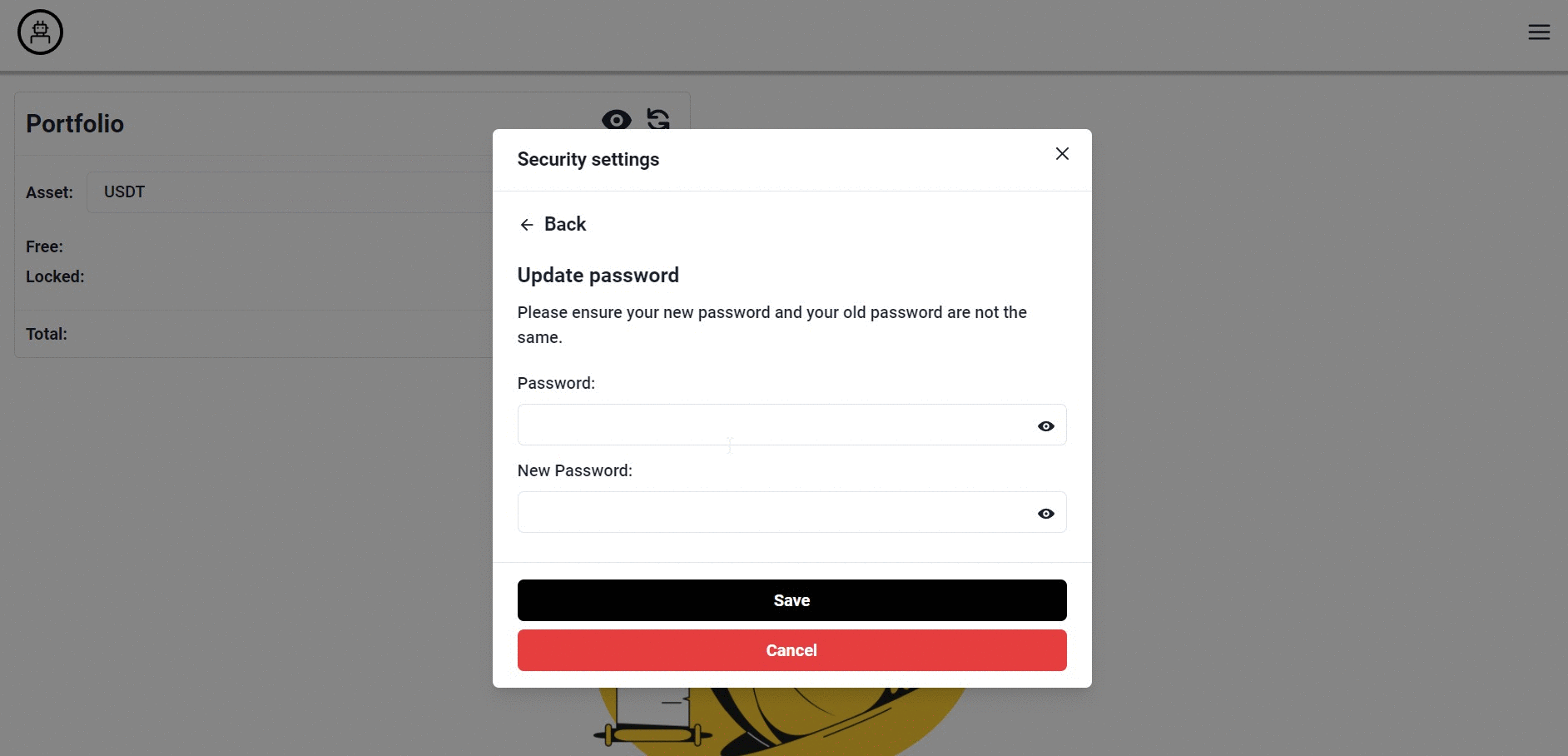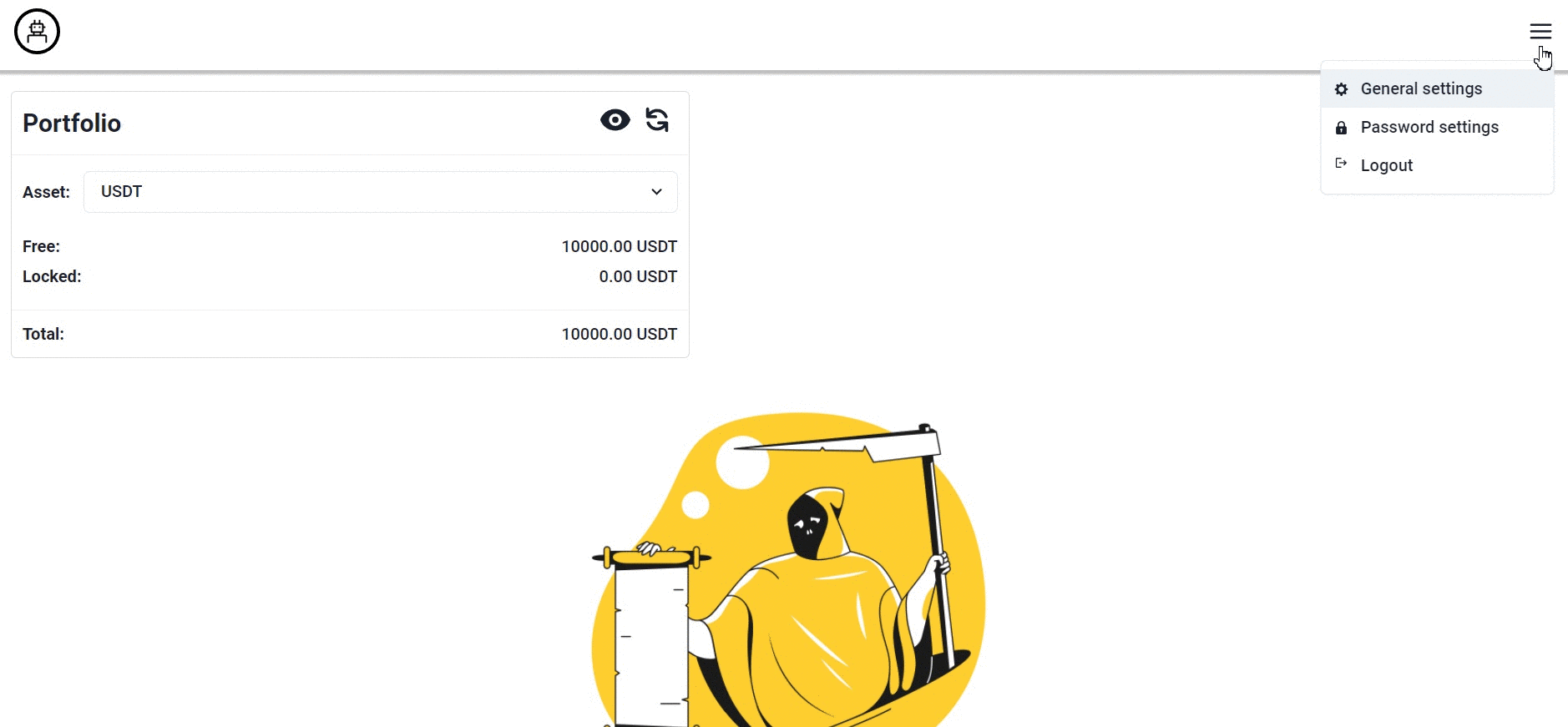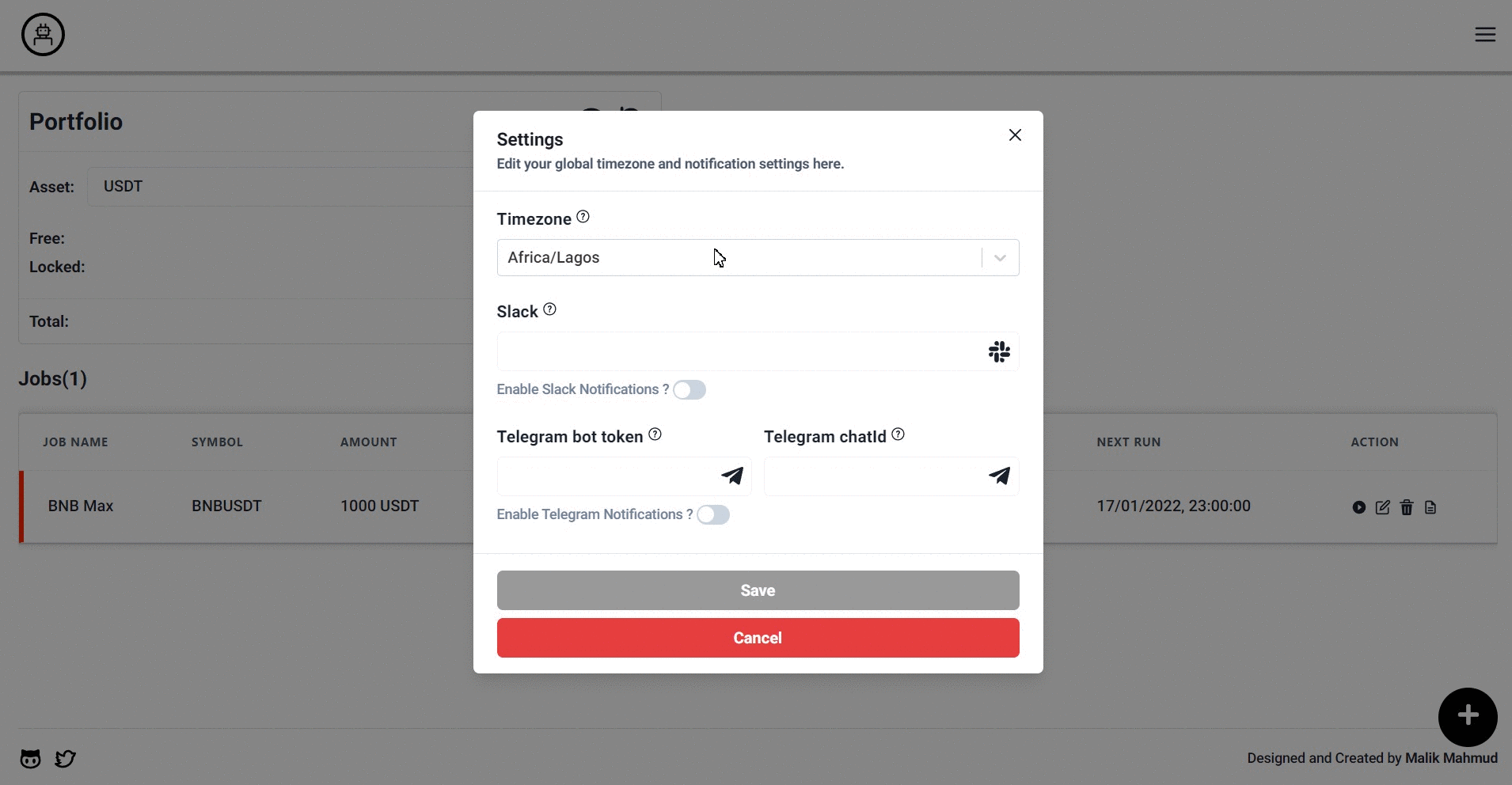This bot allows you to schedule recurring buy orders for any trading pair available on the Binance cryptocurrency exchange.
What is dollar cost averaging? Dollar cost averaging DCA refers to the practice of investing fixed amounts at regular intervals (for instance, $20 every week). This is a strategy used by investors that wish to reduce the influence of volatility over their investment and, therefore, reduce their risk exposure.
- NodeJs v14
-
Get your Binance API keys. You can learn how to from this tutorial
-
Clone the repo
git clone https://github.com/MlkMahmud/binance-dca-bot.git
-
Install dependencies
cd binance-dca-bot npm install
| Environment Key | Description | Sample Value | Required |
|---|---|---|---|
| BINANCE_API_KEY | Binance API key | from Binance | True |
| BINANCE_API_SECRET | Binance API secret | from Binance | True |
| BINANCE_TESTNET_ENABLED | Enable/Disable Binance test mode (defaults to true). You must explicitly set this value to false if you want to run the bot in live mode | true/false | False |
| DB_URL | A valid MongoDB connection string. Learn more | mongodb://mongodb0.example.com:27017 | True |
| JWT_SECRET | A string or buffer containing either the secret for HMAC algorithms, or the PEM encoded public key for RSA and ECDSA | helloiamasecretkey | True |
| PORT | The port you want your server to listen on | 3000 | False |
| SENTRY_AUTH_TOKEN | The authentication token to use for all communication with Sentry. | from Sentry | False |
| SENTRY_DSN | The Data Source Name (DSN) to use to connect to Sentry | from Sentry | False |
| SENTRY_ENABLED | Enable/Disable Sentry | true | False |
| SENTRY_RELEASE | A release is a version of your code deployed to an environment. When you notify Sentry about a release, you can easily identify new issues, regressions, whether an issue is resolved in the next release, and apply source maps. Learn more | v0.0.1 | False |
| SENTRY_ORG | The slug of the organization to use for a command | from Sentry | False |
| SENTRY_PROJECT | The slug of the project to use for a command. | from Sentry | False |
| SLACK_ENABLED | Enable/Disable Slack notifications | true | False |
| SLACK_WEBHOOK_URL | Your Slack webhook URL | from Slack | False |
| TELEGRAM_ENABLED | Enable/Disable Telegram notifications | true | False |
| TELEGRAM_BOT_TOKEN | Authentication token for your Telegram Bot | from Telegram | False |
| TELEGRAM_CHAT_ID | The ID for your Telegram Group/Channel | from Telegram | False |
| TIMEZONE | The default timezone to use for the job scheduler (must be moment compatible) | Africa/Lagos | False |
To start the bot in developement mode run
npm run devN.B. This command loads environment variables from the .env, if it exists
To start the bot in production mode run
npm run build
npm startN.B. This command does not load env variables from the .env file, even if it exists.
There are no strong constraints regarding deployments. The bot is a Next.js application powered by a custom Express server, so there are a myriad of options to choose from. I personally host my mine on an Azure Virtual Machine and I automate my deployments using GitHub Actions.
Some of my personal favourite options for deployment:
View up to date balance of all assets in your portfolio
Enable password
Update password
Disable password
Create a new job
Edit an existing Job
Pause/Resume a Job
Delete a job
View Job order history
Enable Slack and Telegram Notifications
- Fix: unpausing a job causes the job to run immediately, instead of waiting for next scheduled interval.
Please, use at your own discretion. I will not be liable for any losses or hardship incurred from using this bot. ✌
Distributed under the MIT License. See LICENSE for more information.









